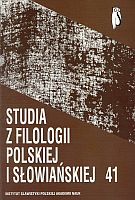
Professor Marian Jurkowski (1929-2005)
Profesor Marian Jurkowski (1929-2005)
In Memory of Professor Marian Jurkowski - famous polish Philologist.
More...
In Memory of Professor Marian Jurkowski - famous polish Philologist.
More...Keywords: Jesuit philosophy; philosophy in Lithuania; second scholastics; Jesuit Aristotelianism
The article consists of the most significant conclusions from the research into the philosophy of Jesuits in Poland and Lithuania that had been systematically conducted by the author for thirty years. It refers to the period since the beginning of the activity of Jesuits in Lithuania in the second half of the 16th century until the end of the 18th century. Having distinguished the two areas of Jesuit philosophy in Lithuania of the relevant period – philosophy connected with teaching, i. e. taught at the Jesuit schools, and civic philosophy, not connected directly with teaching – the article discusses the most eminent Jesuit philosophers, as well as the sources and significance of Jesuit philosophy, also its relation to Aristotelian doctrine and new physics of the time. The main concerns of the insufficiently examined civic philosophy are discussed in the last section.
More...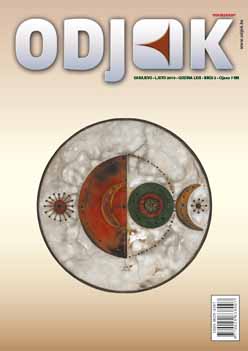
O koristi i šteti kasne sholastike za istoričare filozofije
More...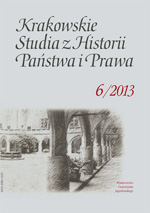
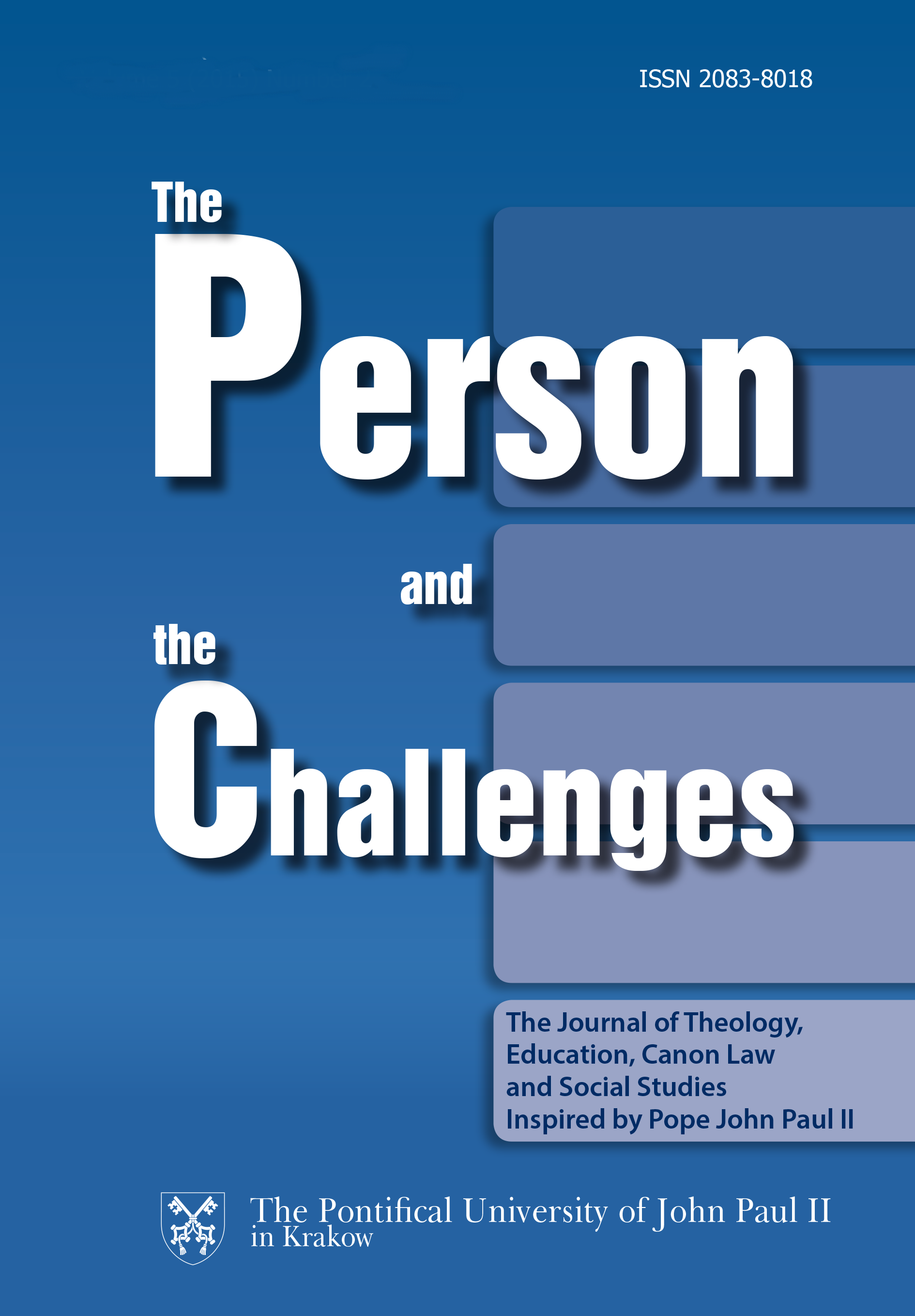
Keywords: Monastery; Cistercians; library; Szczyrzyc; codices
The collection of manuscripts at the Cistercian library in Szczyrzyc amounts to 100 volumes, including four medieval codices dated between 1460–1494; 12 manuscript books dated to the 17th century; 57 dated to the 18th century, and 27 manuscripts dated to the 19th century. Most of them are textbooks, copies of theological, philosophical and legal treatises, works on rhetoric, liturgy, world history, mathematics and herbal medicine, as well as books of homilies for special occasions and feasts. The collection of manuscripts at the monastery in Szczyrzyc is mostly a functional one – it was used by the monks to study and broaden their philosophical, theological, legal and liturgical knowledge. Several codices contain the texts of homilies delivered at various churches on feast days and solemnities, written down by the monks of Szczyrzyc. The surviving codices are bound in simple covers made of damaged folios taken out from liturgical codices, including antiphonaries and graduals. Considering the small number of surviving books, it is difficult to discuss the interests or influences of particular authors and their works on the intellectual level of the religious community of Szczyrzyc.
More...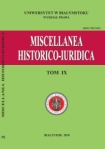
Keywords: book review;
Review of: George Mousourakis "A Legal History of Rome"; London–New York 2007, 282 pages; by: Krzysztof Szczygielski
More...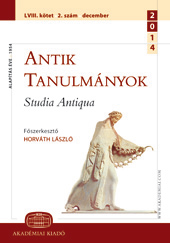
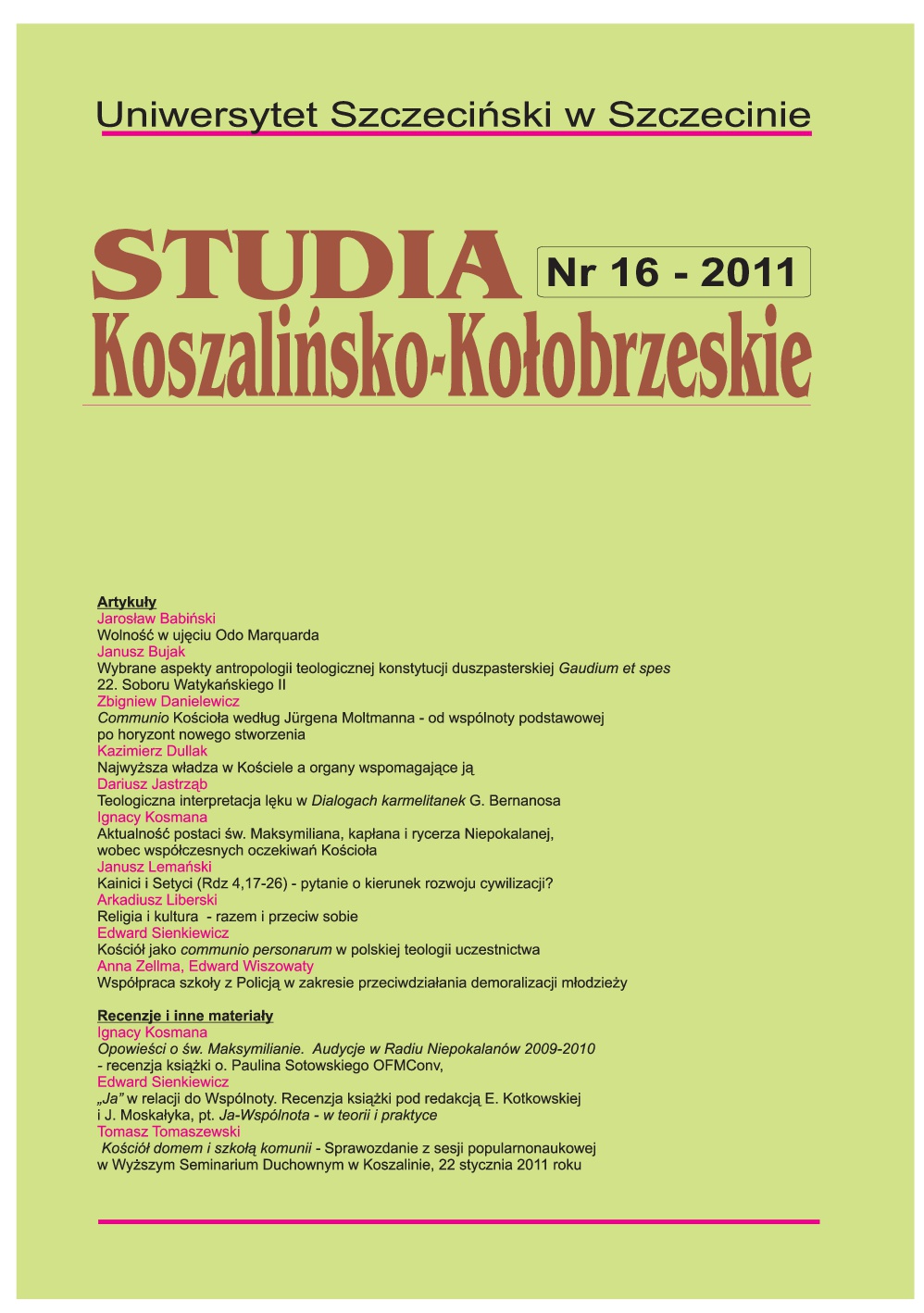
Ignacy Kosmana ̶ Książka o. Paulina Sotowskiego OFMConv, Opowieści o św. Maksymilianie. Audycje w Radiu Niepokalanów 2009-2010, WOF, Niepokalanów 2011, ss. 509. Edward Sienkiewicz ̶ Recenzja książki pod redakcją E. Kotkowskiej i J. Moskałyka, pt. Ja-Wspólnota – w teorii i praktyce, WT UAM Poznań 2010
More...Conference abstracts
More...Keywords: Possibility; possible worlds; Aristotelian; necessary beány;
The article introduces and defends Aristotelian ontological theory of the possible as that which a power (active potency) is capable of bringing about. It regards this conception to be a sort of middle way between Platonic explanation based on abstracta on one hand and the possibilist theory ultimately making everything possible into actual on the other. The doctrine defended leads to the conception of necessary being. Combined with other assumptions concerning this being, there arise some interesting issues and apparent tensions to be resolved. The article outlines some of the discussions related to these problems in medieval and early modern Scholasticism.
More...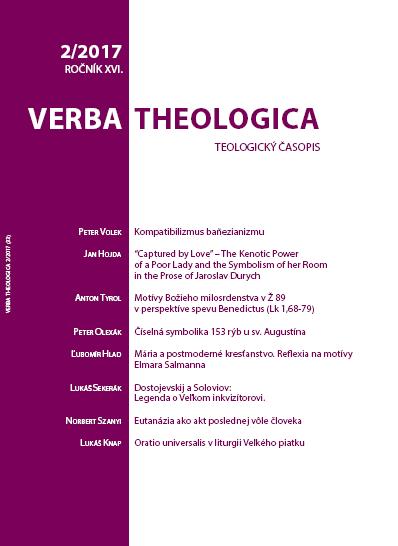
Keywords: Euthanasia; Ethics; Peschke; Schockenhoff; Weber;
This article deals with the phenomenon of euthanasia. It refers to the issue of understanding human death and the ongoing discusion on this topic. At first it presents the definition of euthanasia and it tries to describe what the concept of euthanasia means. In the second part, it draws attention to the opinions and views on the topic of euthanasia from selected German authors, who refuse classical arguments to justify the legitimacy of euthanasia and present arguments against it. Finally, the article contains a summary of the most important recent arguments about euthanasia and draws attention to the importance of assessing the intent of the act and the difference between the terms killing and letting die.
More...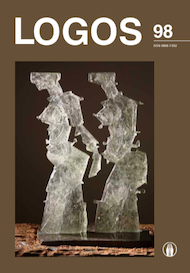
Keywords: Daukantas; Herder; Kosellek; vigilance; concept of culture; language; nation; history;
This article investigates how the emerging term of “culture” was conceptualized in the works of the famous Lithuanian historian Simonas Daukantas (1793–1864). He was the first Lithuanian nineteenth-century historian who wrote in his mother tongue. Although Daukantas was the follower of Johann Gottfried Herder (1744–1803), who was the first to establish “cultura” as a term (die Kultur), Daukantas did not use the term “cultura” to signify the concept of culture as it is known today. The article shows that in his Polish texts Daukantas uses the term “civilization” in place of “culture” and this word is found in his dictionary Didysis lenkų–lietuvių kalbų žodynas (The Great Polish-Lithuanian Dictionary ~ 1850–1856). In Dictionary he translated the term “civilization” from Polish to Lithuanian using the word vigilance (“akylumas”): “Cywilizacya” became “akylumas”, the verb cultivate: “Cywilizować” became “akylinti” and the adjective vigilant: „Cywilizowany” – “akylas”. Using Reinhart Kosellek’s theory on the history of concepts, this article discusses why Daukantas chose the word vigilance („akylumas”) in place of the concept of culture.
More...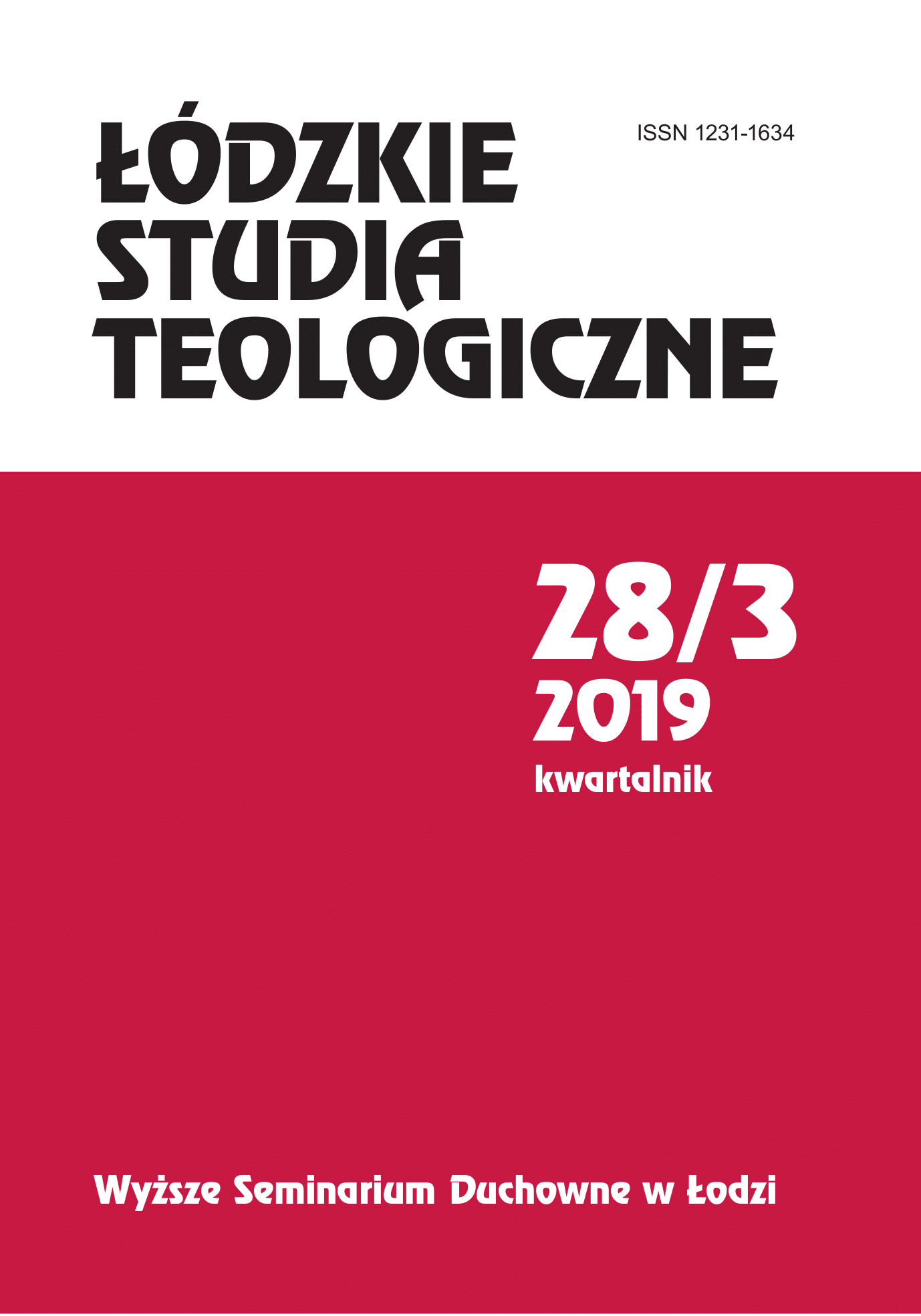
Keywords: canon law; Oxford; eighteenth-century manuscripts
During the times of the Reformation in England the teaching of canon law was officially prohibited. The needs of ecclesiastical justice, however, forced the lecturers of the Roman law – the only law taught at Oxford and Cambridge universities at the time – to insert canonical matters into their lectures. It is hard to evaluate how large that amalgamation was. Nonetheless, it is certain that the canon law survived the Reformation and flourished in changed circumstances. Besides the lectures, the knowledge of the canon law could be acquired by everyone who was linked with the universities thanks to the library resources that survived the Reformation. One of the most amazing collection of Catholic canon law manuscripts was stored in the library of New College, Oxford. The article presents the content of a catalogue of these manuscripts drawn up in 1729. Its expanded version was published in 1852. The comparative analysis of both catalogues allows us to determine the origins of these manuscripts. Moreover, it sheds light on the condition of canon law studies in the early eighteenth-century England.
More...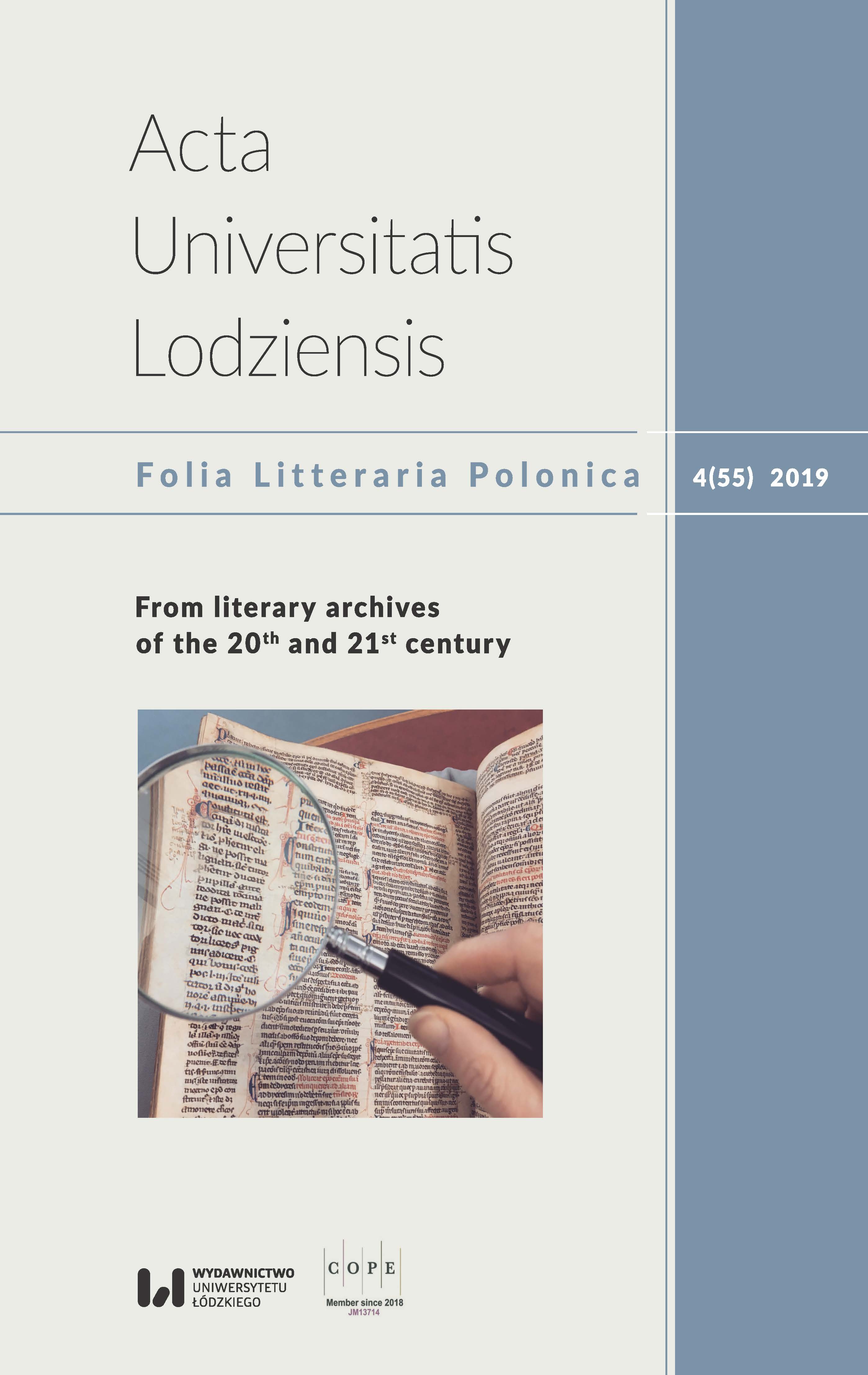
Keywords: topos; topos of the gardener; garden; utopia; God; Satan; paradise; Adam and Eve
“The gardener’s topos based on the example of the poem Ogrodnik by Czesław Miłosz (text analysis)”. The article is a detailed consideration of a poem by Czesław Miłosz entitled Ogrodnik [Gardener]. The main object of the hermeneutic and structural analysis of this poem is the “topos of the gardener”. The analysis is meant to characterize the topos of the gardener and point to the role of a modern poet and modern Polish literature.
More...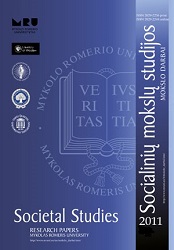
Keywords: being; eternity; time; modern scholasticism; cause; God; ratio; Thomas Aquinas;
At the core of Thomas Aquinas metaphysics of being lies the actual divide between the act of being (actus essendi) and the essence of every living being. This context of metaphysics alone allows the understanding of the meanings of eternity and time as used by Thomas Aquinas. Duns Scotus understands being in a different way, he provides the concept of univocity of being, in other words, the meaning of being does not change with regard of its affiliation to the God or to the created living being. In this way, supposedly, the rational mind of man can, in effect, attain the God:in the same way as we gain comprehension of any living being, so we are granted the ability to comprehend the God on the condition that our minds are sufficiently deep. Thomas Aquinas proposition about the underlying inability of human rationality to attain the God is erased from this approach. As early as the 15th century the followers of Thomas Aquinas forgot or openly critisised their educator‘s proposed reality of the divide between the act of being and the essence of being, and showed tendencies to accept Duns Scotus’ concept of the univocity of being. In this way the comprehension of being, and even that of the God, has become limited to the rules of human ratio,i.e. the rationalising of the comprehension of being has taken place. The law of causality, which Thomas Aquinas held applicable only to the domain of the created beings, modern scholastics introduced to the domain of the Divine being, as though the God could be comprehended as the ultimate cause and measured by the identical meaning of the cause concept, which is professed in the created world. The God is turned into Causa sui; a phantom concept, broadly spread among modern scholastics, but entirely foreign to Thomas Aquinas. The very modern scholasticism here, in a manner of speaking, converges with the general post Cartesian European metaphysics, particularly with its Leibnitz version. Eternity gains the understanding of a rationally interpreted concept of immobility, i.e. creating logical opposition to mobility and by abstracting from all features of mobility to produce a pure idea of immobility – eternity. The Thomas Aquinas’ concept of eternity here is forgotten or intentionally relocated to the field of theology, clearly separate from philosophical thinking. The concept of time, in its own turn, is devoid of its onthological weight, which it used to show in Thomas Aquinas’ texts. Now time is no more a measure of onthological passing of the created being, but an inconsiquential measure of physical movement. Hence stem endless and sterile disputes about the „subjectivity“ and „objectivity“ of time, disputes alien to Thomas Aquinas. The article concludes, that scholastics discussed in the article, despite their ambitions to pass as official interpreters of Thomas Aquinas, distorted the meaning of his texts. More, they became shareholders of the overall Western post Cartesian methaphysics, irrespective of their declarative struggle with the outcomes of this metaphysics (particularly in the area of morales). The assumption that thinking is a mere technique, as well as the whole world, and the God is mere technician, makes it pointless to fight the consequences of technology: it is senseless to destroy something what you are producing yourself continuously. The article ends in discussion about the meaning of philosophy in Thomas Aquinas works and its relevance for the modern world.
More...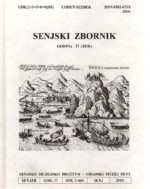
Keywords: Dominis; church; state; Christian community; republic, Plato;
The basic thought of Marco Antonio de Dominis was the ecclesiological question of the unity of all Christian churches, but his conceptual approach was a philosophical problem.Placing the question again of the essence and nature of the Christian community, the possibility of achieving the reunion of all Christian churches is based on the identity of their foundations, and the democratic principles of Christian origins. In Dominis's idea of a church republic is apparent in the spirit of Plato, where Plato's vision of a community, based on the idea of Goodness, translates into a philosophical-theological language as a community based on the idea of the original Christianity.
More...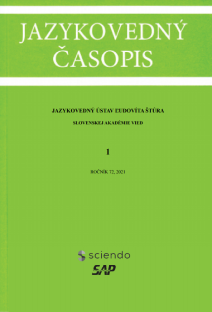
Keywords: onomastics; theory of onomastics; Slovak onomastics; personality of V. Blanár;
The article summarizes the basic principles of Blanár’s conception of the theoretical study of the nature of proper names. The principles are as follows: functionality, structure of the system, applications of the dimensions of location, time and extension, creation based on nomination models. Propria exist to support and facilitate communication. Theoretical studies reflect this fact through a strong social perspective.
More...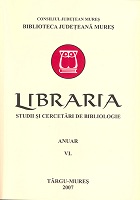
Keywords: Satu Mare County Library; collections; Venetian books; 16th century;
The study deals with some of the valorous books from Satu Mare County Library special collection, that were printed at Venice, one of the most important typographic center, during the XVIth century. There are also very important information about the typographic activity of Aldus and Paulus Manutius, whose contribution to some of the books the study deals with, is evident: the first edition of Titus Vespasianus and Hercules Strozzius’ poems, published in 1513, and Cicero’ s correspondence, first printed in 1559. Finally, the study presents Dialogo della degnita dell huomo, published in 1575, but still unknown to many of the researchers; and the last book the study deals with, is a selection of fables, most of them written by Esop, but there is also the contribution of other writers.
More...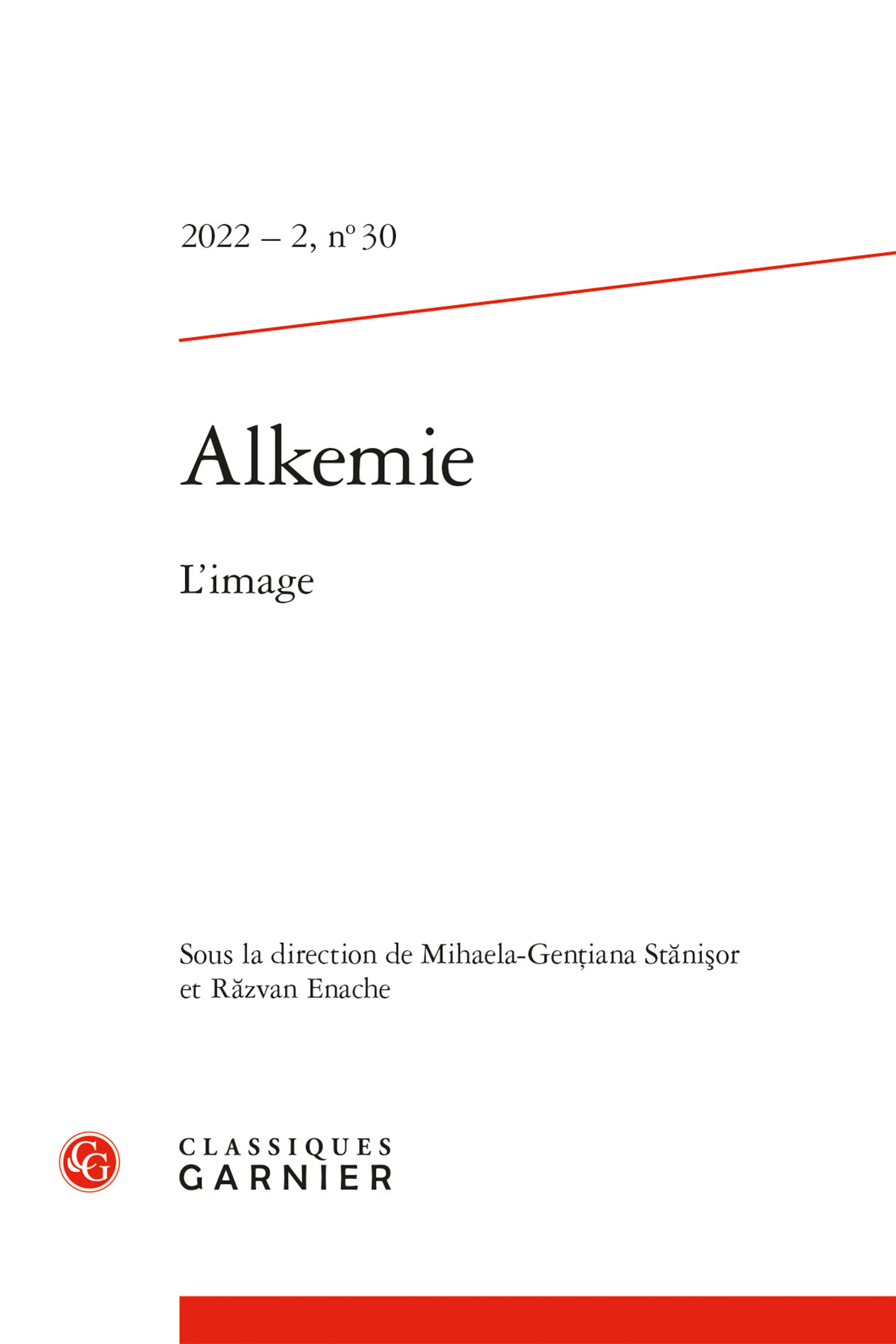
Keywords: imago; representation of gods; immortality of the soul; posterity; disputatio;
A few notable occurrences of the term imāgō, inis, f. exemplify Cicero's use of this term inserted in disputationes which are centered notably on the question of the representation of the divine as well as that of the immortality of the soul and the posterity of men. These occurrences highlight his argumentative (and more specifically refutative) techniques in the context of conceptual debates representative of the philosophical issues of the late-Republican period.
More...